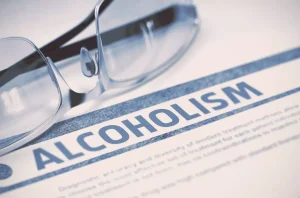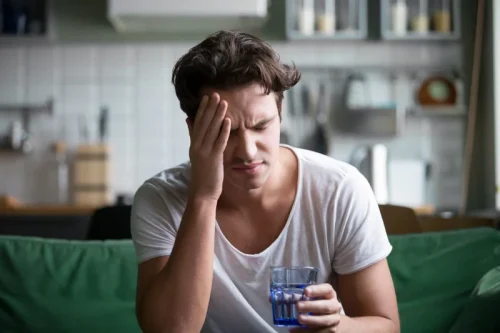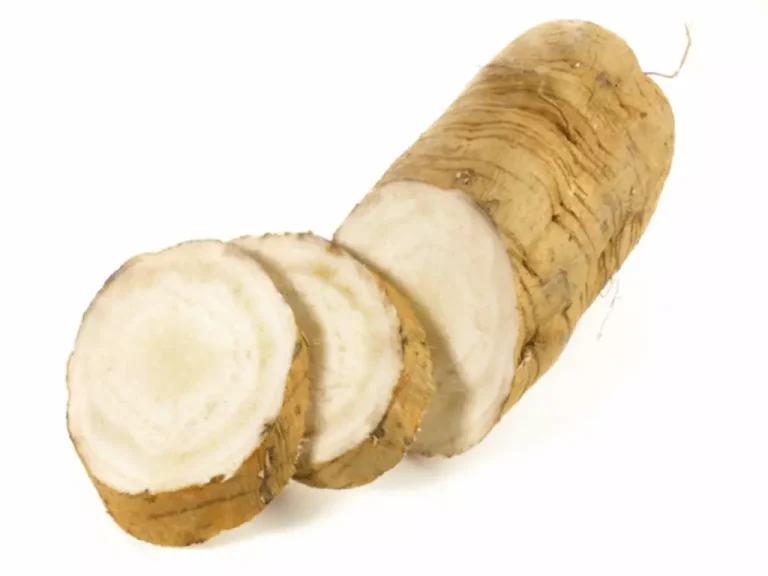
You may find that alcohol-free sleep is much better quality and that you generally feel more rested and refreshed the next day. There is a wide range of options — from residential “detox” programs to cognitive behavioral therapy, to medications such as naltrexone which can help people drink less, or acamprosate, which can help people stay dry. I order a mocktail when I meet people for how to take a break from drinking drinks because it feels good to sip a drink that has an air of indulgence to it. The action also helps reduce any worry of being interrogated by strangers about why I’m not drinking (it happens all too often) because mocktails look just like cocktails. Replacing an alcoholic drink with a non-alcoholic drink that is “special” can be a big help when quitting booze, Shapiro notes.
Food Is Medicine research hits home, helps patients improve long-term health

These are usually going to pop up at times where we used to have a drink – after work, when out with friends, driving past the bottle shop. Many Daybreak members have noted that having some replacements for alcohol (such as alcohol-free beer or wine, tasty refreshing drinks or herbal teas) can be great at stopping urges in their tracks. In this series of Tips & Hacks by Hello Sunday Morning, we’re talking about what to expect when you take a break from alcohol. It can be good to be aware of some of the things that might change for you if you take this step – from your social life to the health side of things.
Short-term benefits of Dry January
- Even if you don’t experience these symptoms and just want some extra help, it’s worth reaching out.
- Stress about money can become an issue in taking care of personal needs and appearance, as it might be spent on use in place of basic necessities.
- People often need to address past trauma or familial issues during this time.
- “Those early days of abstinence from alcohol were so tough, because I had no friends,” he says.
- Identify a family member or friend who you can call on to provide emotional support.
In particular, conversations with friends tend to be more in depth when we’re not drinking – and we can find ourselves talking about a broader range of topics than before. One hidden benefit of https://ecosoberhouse.com/article/alcohol-and-headaches-why-does-alcohol-cause-migraines/ is in the hip pocket – we might not be aware of this, but nights out with friends or even a few bottles of wine per week tend to add up. It is an idea to keep track of how much money you’re saving if you take a break from drinking – most people find that putting that money aside and saving up for something meaningful is an additional motivator. The irony of alcohol is that we often drink to feel relaxed, to tamp down anxiety. But over time, White says, this can lead to escalating levels of anxiety. “You might drink at night to reduce your anxiety. And then, as a result, the next evening, you feel more anxiety, which then motivates you to drink again,” White says.
- I was in my early 40s, that career stage when you’re eager to leave a good impression.
- These symptoms may start a few hours or a few days after your last drink of alcohol.
- An exciting part of this period is that it can lead you to a happier life full of welcomed change and constant improvement.
- Vowers says not drinking makes him feel more present — more grounded.
- Research shows that drinking large amounts of alcohol before bedtime leads to decreased sleep onset and disrupted, poor quality sleep later in the night.
Monitor your drinking
“The findings of these studies are actually very surprising,” White says. Health risks linked to heavy, long-term drinking are well known, but this is some of the first evidence to help scientists understand how the body responds to even a short break from moderate alcohol use. And while there is virtually no downside to taking a break from drinking alcohol — or quitting altogether — science is just beginning to study the ways abstinence might be good for you. If you’re having difficulty finding support systems as you experiment with quitting drinking or aren’t sure how to make sober friends, Stewart recommends connecting with sober folks on social media. Your body has acclimated to quitting drinking over the past couple of years. Researchers have yet to uncover the specific ways that drinking raises your risk of developing these health conditions.
Biden has privately acknowledged next stretch of days are critical for whether he can save his reelection bid
So if you think you might be dependent on alcohol seek advice from a GP first. “If heavier drinkers remove alcohol for a longer period of time, they might see weight loss, improvement in body composition, less stomach fat, improvement in triglycerides (one of the fat particles in the blood),” she said. If you need a break from alcohol, going alcohol-free for a month or more can bring about many physical and mental health benefits. As you can see, when we take away alcohol quite a few things change – and it is likely that you’ll experience a period of adjustment as you get used to your ‘new normal’. Everyone experiences this differently and it’s great to take some time to reflect on things at the end of each week and take note of the changes – both positive and negative – that you’ve noticed. You may find yourself being more social during the day, and relaxing and unwinding during the evenings when you’d normally be out and about.

How do you detox your liver?
- Taking a break and reducing your tolerance is an important thing to do for your health.
- If your liver has taken a hit from prolonged alcohol use, there are ways to give it — and the rest of your body — a break.
- Naltrexone is one type of medication that can help reduce alcohol cravings, making it easier for some people to stop drinking.

Why abstinence if your goal is to moderate your use?
What are the long-term health benefits of not drinking alcohol?
- Regardless of the reason and goal, 30 days of abstinence is the best way to start.
- While the process may take several years, the outcome is a happier, healthier life where you have the freedom to fulfill your full potential.
- Recovery from AUD is marked by stages of abstinence, withdrawal, repair, and growth.

